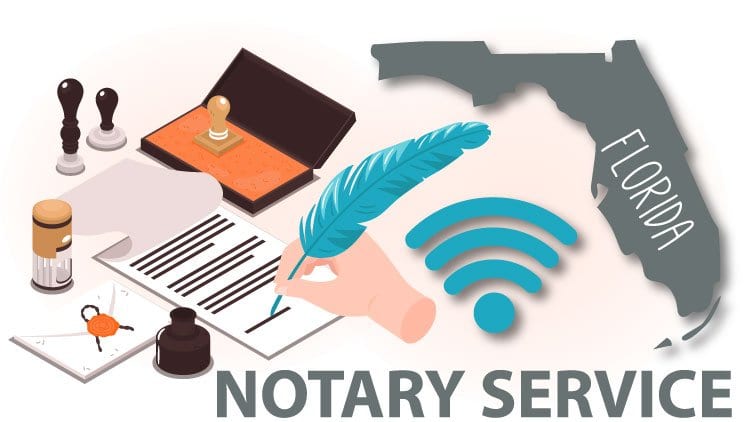The Power of Notaries: How Notarial Job Can Secure Your Legal Files

Value of Notarial Accreditation
Notarial qualification plays a critical duty in guaranteeing the authenticity and legitimacy of crucial files. When a document is notarized, a notary public confirms the identification of the notaries, confirms their determination to authorize the record, and ensures they understand the components of the paper (Deceased Estate). By attaching their main seal and signature, the notary certifies that the individuals showing up before them are who they declare to be, and the document has actually been signed willingly and without pressure
This process adds a layer of security and reputation to the paper, making it more reliable and trustworthy in the eyes of the law. Notarial qualification likewise helps protect against fraud and imitation by offering a clear trail of liability. In lawful matters, such as realty purchases, wills, powers of lawyer, and organization contracts, notarial qualification is typically a requirement to confirm the records and offer them lawful result.
Sorts Of Legal Papers Sworn

The application of notarial accreditation expands to a varied array of lawful documents that need confirmation and recognition. One typical kind of lawful file that commonly calls for registration is genuine estate purchases.
Additionally, powers of attorney, which grant somebody the legal authority to act upon behalf of another person, are typically notarized to ensure their validity and enforceability. Testimonies, vouched declarations made under oath, additionally frequently require registration to include trustworthiness and legitimacy to the declarations being made. Numerous service records such as contracts, arrangements, and business filings are frequently sworn to guarantee their legitimacy and credibility in the eyes of the law.
Advantages of Registration
Guaranteeing the authenticity of lawful documents through registration supplies a critical layer of safety and integrity in different crucial transactions. Notarization supplies numerous benefits that can dramatically impact the legitimacy and reliability of legal records. Notarized documents are much more most likely to be approved by courts and various other establishments as reliable and real. This can expedite procedures such as probating wills, moving actual estate titles, and performing service contracts, conserving time and resources. Registration acts as a deterrent to fraudulence and forgery, as the presence of a notary public verifies the identities of the signatures and ensures they are authorizing the paper voluntarily and with complete understanding of its materials. Additionally, notaries help prevent coercion or discomfort in the finalizing procedure, additional guarding the events included. Generally, the benefits of notarization prolong past plain recognition; they impart confidence in the stability and validity of essential lawful purchases, making it a useful device in today's facility service and legal landscape.
Stopping Document Tampering
By implementing strict safety and security actions, paper tampering can be successfully protected against. basics Among the most read typical approaches to stop file meddling is through using tamper-evident innovation. This modern technology consists of features such as unique paper, watermarks, holograms, and security seals that make any type of unapproved modifications promptly visible. Furthermore, making use of secure digital certifications and digital trademarks can offer an additional layer of defense versus meddling.
One more reliable way to avoid paper meddling is by storing physical papers in safe and secure locations and restricting access to licensed workers just. Conveyancer. This can include keeping documents in locked safes or cabinets and applying rigorous access control steps within the organization

Notary Public Vs. Online Notarization
Notary public solutions supply a conventional approach of verifying the authenticity of lawful files, while on-line notarization uses a hassle-free and efficient option in the electronic age (Apostille). Notary her latest blog publics are state-appointed authorities that witness the finalizing of important papers, carry out oaths, and verify the identities of the notaries. Their stamp and trademark offer trustworthiness and authenticity to the records they notarize, ensuring they hold up in court if challenged
Via safe on-line systems, individuals can connect with a notary public using online video clip to verify their identities and sign papers digitally. Ultimately, the selection between traditional notary public solutions and on-line notarization depends on individual choices and the specific needs of the lawful document at hand.
Final Thought
To conclude, notarial work plays an essential role in protecting lawful documents by providing a qualification of authenticity and preventing tampering. Registration includes an additional layer of security and reputation to essential records, ensuring their legitimacy in legal matters. Whether via a conventional Notary Public or on the internet notarization solutions, the power of notaries can not be underestimated in making sure the integrity of legal documents.
When a record is notarized, a notary public confirms the identification of the signatories, verifies their desire to authorize the document, and ensures they are conscious of the materials of the record. In legal matters, such as genuine estate purchases, wills, powers of lawyer, and business agreements, notarial accreditation is often a requirement to verify the records and provide them lawful impact.
Notary public solutions give a traditional approach of verifying the authenticity of legal papers, while on the internet notarization uses a efficient and convenient alternative in the electronic age. Ultimately, the choice between conventional notary public services and on-line notarization depends on individual preferences and the specific requirements of the lawful paper at hand.
